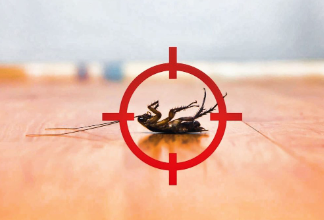Dealing with Newmarket’s Unique Pest Challenges: Expert Tips and Solutions

Newmarket, a vibrant and growing town in the Greater Toronto Area, is known for its charming neighborhoods, beautiful parks, and a blend of urban and suburban living. However, like any other area, Newmarket faces its unique pest challenges that can disrupt the comfort and safety of homes and businesses. From rodents and insects to wildlife, dealing with these pests requires a combination of proactive measures and expert interventions. This article explores the unique pest challenges in Newmarket and provides expert tips and solutions to keep your property pest-free.
1. Understanding Newmarket’s Pest Landscape
Newmarket’s mix of residential areas, green spaces, and proximity to water bodies creates an ideal environment for various pests. The most common pests in the area include:
- Rodents (Mice and Rats): The cold winters in Newmarket drive rodents indoors, where they seek warmth and food. These pests can cause significant damage by gnawing on wires, insulation, and wood, and they are known carriers of diseases.
- Ants: Ants, particularly carpenter ants, are common in Newmarket. These pests can cause structural damage as they excavate wood to build their nests.
- Cockroaches: Cockroaches thrive in urban environments and can be a significant health hazard due to their ability to spread diseases and trigger allergies.
- Wasps: Wasps are a common summer nuisance in Newmarket, especially when they build nests near homes or in high-traffic areas.
- Wildlife (Raccoons, Squirrels, Skunks): Newmarket’s green spaces and suburban setting attract various wildlife, which can become problematic when they invade homes, attics, and garages.
Understanding the specific pests that are likely to affect your property is the first step in developing an effective pest control strategy.
2. Proactive Prevention Strategies
Prevention is always better than cure, and this is especially true when dealing with pests in Newmarket. Implementing proactive measures can significantly reduce the risk of pest infestations. Here are some key prevention strategies:
A. Seal Entry Points
- Rodents and Insects: Inspect your property for any gaps, cracks, or holes that pests could use to gain entry. Pay special attention to areas around doors, windows, vents, and the foundation. Use caulk, weather stripping, or steel wool to seal these entry points.
- Wildlife: Ensure that your attic, chimney, and vents are properly sealed with sturdy materials to prevent wildlife from entering. Installing chimney caps and vent covers can also help keep animals out.
B. Maintain Cleanliness
- Food Storage: Pests are attracted to food sources, so it’s essential to store food in airtight containers and clean up spills and crumbs immediately. Regularly empty trash bins and ensure they are tightly sealed.
- Outdoor Areas: Keep your yard and garden tidy by removing fallen leaves, woodpiles, and debris where pests can hide. Trim back trees and shrubs that are close to your home to eliminate potential pathways for pests.
C. Proper Waste Management
- Garbage Disposal: Store garbage in sealed containers and place them away from the house. Regularly clean trash bins to remove odors that attract pests.
- Composting: If you compost, ensure that your compost bin is securely covered to prevent attracting rodents and wildlife.
3. Expert Tips for Common Pest Problems
While prevention is crucial, there are times when pests manage to invade despite your best efforts. Here are expert tips for dealing with some of the most common pest problems in Newmarket:
A. Dealing with Rodents
- Trapping: Use snap traps or live traps to catch rodents. Place traps along walls where rodents are likely to travel, such as behind furniture or in the attic.
- Baiting: Use bait stations with rodenticide in areas where trapping is not feasible. However, be cautious with bait placement, especially in homes with children and pets.
- Professional Help: If you have a large infestation or are unsure how to deal with rodents, it’s best to call in professional pest control services. They can provide more comprehensive solutions, including rodent-proofing your home and setting up ongoing monitoring.
B. Managing Ant Infestations
- Baiting: Use ant baits to attract and eliminate entire colonies. Place baits near ant trails and entry points, and allow time for the bait to work.
- Natural Repellents: You can use natural repellents like vinegar, lemon juice, or essential oils (such as peppermint) to deter ants. Spray these solutions around entry points and areas where ants are commonly found.
- Structural Repairs: If carpenter ants are the issue, inspect your home for damp or damaged wood, which attracts these pests. Repair any water leaks and replace damaged wood to eliminate their nesting sites.
C. Controlling Cockroaches
- Sanitation: The key to controlling cockroaches is maintaining a clean environment. Regularly clean kitchen counters, floors, and appliances to remove food residues.
- Baits and Traps: Use cockroach baits and traps in areas where you’ve noticed activity, such as under sinks, behind appliances, and in dark corners.
- Professional Treatment: Cockroaches can be difficult to eliminate completely. Professional pest control services can provide more effective treatments and ongoing monitoring to ensure your home remains cockroach-free.
D. Handling Wasps
- Nest Removal: If you discover a wasp nest on your property, it’s important to remove it early before it grows larger. However, removing a nest can be dangerous, so it’s recommended to hire professionals to do this safely.
- Preventive Measures: To prevent wasps from returning, keep sugary foods and drinks covered when eating outdoors, and seal any cracks or holes in your home’s exterior.
E. Managing Wildlife Intrusions
- Exclusion Techniques: Wildlife can be persistent in finding ways into your home. Install sturdy barriers, such as heavy-duty mesh, over vents and other potential entry points.
- Humane Trapping: If wildlife has already entered your home, humane trapping and relocation are effective ways to deal with the problem. However, this should be done by professionals to ensure the safety of both the animals and your property.
- Professional Wildlife Control: Dealing with larger wildlife, such as raccoons or skunks, often requires specialized expertise. Professional wildlife control services can safely remove these animals and implement exclusion methods to prevent future invasions.
4. When to Call in the Experts
While DIY methods can be effective for minor pest problems, there are times when professional intervention is necessary. If you’re dealing with a severe infestation, repeated pest issues, or wildlife intrusion, it’s time to call in the experts. Professional pest control services in Newmarket offer tailored solutions to address the specific pest challenges of the area. They have the knowledge, tools, and experience to deal with pests effectively and prevent future problems.
Professional pest control in Newmarket can also provide ongoing monitoring and maintenance, ensuring that your home remains pest-free year-round. Whether you’re dealing with rodents, insects, or wildlife, professional help can save you time, money, and stress in the long run.
Read more: Delilah Fishburne Health
Conclusion
Newmarket’s unique pest challenges require a proactive and informed approach to pest control. By understanding the common pests in the area and implementing preventative measures, you can protect your home from infestations. However, when pests do manage to invade, it’s important to address the problem quickly and effectively. With expert tips and professional help, you can keep your Newmarket home safe, healthy, and pest-free. Whether you’re dealing with rodents, insects, or wildlife, the right strategies and solutions can make all the difference in maintaining a comfortable living environment.




